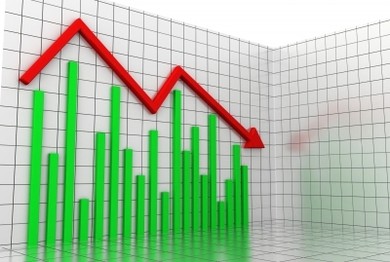he outcome of the snap parliamentary elections in Bulgaria will add to political instability in the country according to the latest report of the Fitch Ratings Agency. The problem is in insufficient support for election winner GERB in the context of a heavily fragmented parliament that will make the composition of a stable cabinet very hard, analysts say.
The International Monetary Fund has added further bleakness to the picture by cutting its prediction for Bulgaria's economic growth for both this and next year. In its autumn World Economic Outlook the IMF has forecast Bulgaria GDP growth at 1.4% this year implying a drop of 0.2% compared to an April outlook. An acceleration of economic growth to 2% is expected in 2015, but this too is below the April GDP growth outlook at 2.5% in 2015. Regrettably, this forecast is even more pessimistic than official figures released by the government. It expects growth at 1.5%, worse than the originally planned 1.8%.
Political instability indeed is the main factor that hinders the country's economic upsurge, experts monitoring the economic development of Bulgaria agree. Political instability that has persisted for longer than 18 months now has visibly impacted on economic operations, business plans of enterprises and the intentions of investors. Hardships experienced by the private sector are coupled with ailing public finance that has seen a constant rise in the budget deficit and a climbing government debt. This directly influences economic activity given that the state remains the biggest investor, employer and entrepreneur in Bulgaria.
The update of the state budget and taking further debt look quite imminent. This is the conclusion from the latest economic analysis released by one of the largest commercial banks in the country. Bank runs last summer, a slowed down economy and high public spending have weakened Bulgaria's public finance, and this clearly shows in the draft for a budget update proposed by the caretaker government, Fitch Ratings analysts contend.
In turn, the experts of the Austrian Raiffeisen Bank in Bulgaria have pointed to the worsening of the budget deficit issue. Until July 2014 a deficit worth 600 million euro was accumulated, by 500 million euro more on last year's deficit. The government should draw a new loan to be able to make up for additional deficit, observers said. The upcoming revision of the budget makes clear how weak economic growth, unpredictable fresh spending and the need to support banking system liquidity enervate public finance, Fitch explained. Let us remind you that fiscal discipline happened to be Bulgaria's key advantage that evoked the respect of international financial and political circles.
Against the background of these negative forecasts, there is some consolation in reports saying that in the global economic freedom chart Bulgaria has tangibly improved its rankings climbing ten notches to reach a decent 40th position, up from last year's 49th from among 152 surveyed countries. This by the way is a clear signal that business conditions in the country have been improving.






